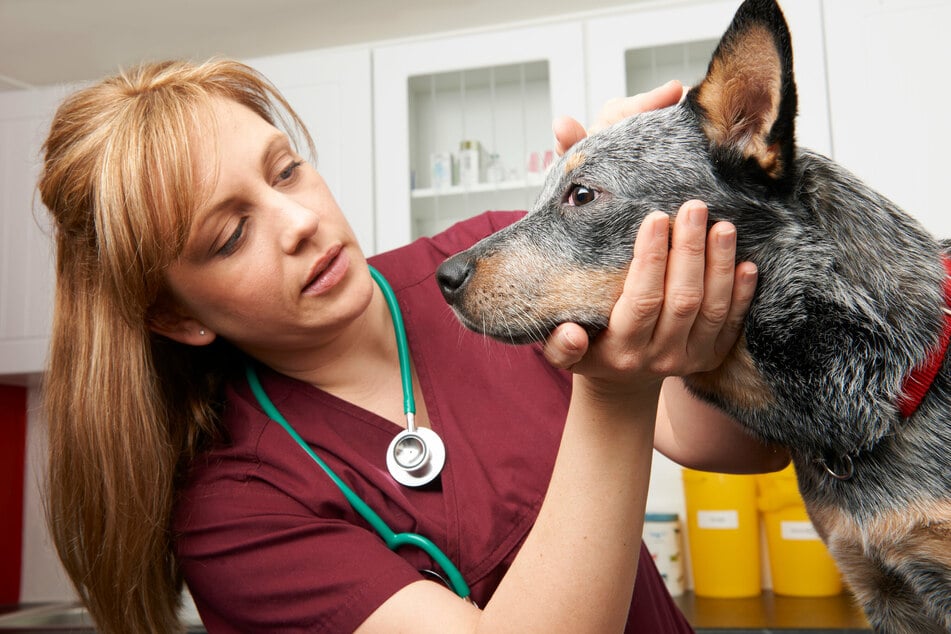Dogs often enjoy licking everything as they gather information about their surroundings with their tongues. However, if a dog constantly and excessively licks the floor, pet owners should take a closer look at their four-legged friend.
At first glance, the floor may seem clean, so some dog owners might wonder why their dog is licking the floor.
However, dogs’ senses are much more precise, allowing them to perceive subtle tastes. When a dog licks the floor afterward, it is initially nothing unusual.
Yet, when dogs repeatedly lick the floor or other surfaces obsessively, this behavior may not always be as harmless as it seems.
On one hand, the dog could potentially poison itself with chemicals from floor cleaning agents. On the other hand, the dog may be experiencing psychological or physical issues.
In this dog guide, you will learn about the complaints that floor licking in dogs may indicate.
Why does the puppy lick the floor?
Similar to human babies, dog puppies explore their surroundings by licking or chewing on everything with their sensitive tongues.
This behavior is normal and harmless when the small dog licks the floor in a relaxed posture, either enjoyably or with interest.

Why does the dog lick the floor?
If an adult dog’s daily life is unstructured, very stressful, or if the dog receives insufficient attention from its owners, the dog may develop behavioral issues. Licking the floor is very relaxing, distracting, or engaging for dogs.
Psychological causes for floor licking in dogs:
- Residual smells and tastes of food remnants
- Attempt to lick unpleasant odors (e.g., cleaners)
- Attempt to attract attention
- Boredom
- Stress
- Fear
It is helpful to identify any stress factors, problems, or fears the dog may have. Subsequent measures should be taken accordingly. If uncertain about how to help the dog, seeking assistance from dog trainers or dog psychologists is advisable.
Behavioral abnormalities can also be an indication of a serious illness or suffering of the dog.
Possible physical complaints for which dogs lick the floor:
- Compensating for pain
- Nausea (a precursor to vomiting)
- Neurological causes (compulsive disorders)
- Acid reflux
- Foreign body in the throat
- Inflammation in the throat
- Organic diseases
If the dog’s behavior involves pathological or excessive licking of floors and other surfaces, such as walls, tables, and sofas, this is medically referred to as ELS (“Excessive Licking of Surfaces“).
The following diseases can lead to ELS in dogs:
- Gastrointestinal problem/chronic digestive problem
- Gastric ulcer
- Inflammation of the pancreas
- Liver dysfunction
- Mucous membrane inflammation
- Adrenal gland dysfunction
As soon as there is suspicion that the dog has a serious medical problem, the animal should be examined by a veterinarian.

Dog licking the floor: How do I recognize a case for the vet?
In most cases, licking the floor is harmless for the dog. To recognize warning signs, owners should pay attention to additional indications and symptoms.
If the dog is licking the floor enjoyably, and the rest of the body is relaxed, there is no cause for concern. It should only be noted that floor licking does not become a bad habit for the dog, and the floor has not been cleaned with substances toxic to the dog.
Pet owners should become attentive if the dog is constantly licking the floor wildly and refuses to stop. In general, it can be said that if the dog licks the floor for more than 15 minutes, a visit to the vet is recommended.
Symptoms in addition to floor licking that require a visit to the vet with the dog:
- Drooling
- Hiccupping
- Burping
- Empty swallowing
- Gagging
- Vomiting
- Breathing problems such as panting or prolonged breath-holding
- Pale mucous membranes (in cases of poisoning)
If the dog seems physically or mentally unwell, a visit to the vet or the advice of a dog trainer is advisable in any case.


